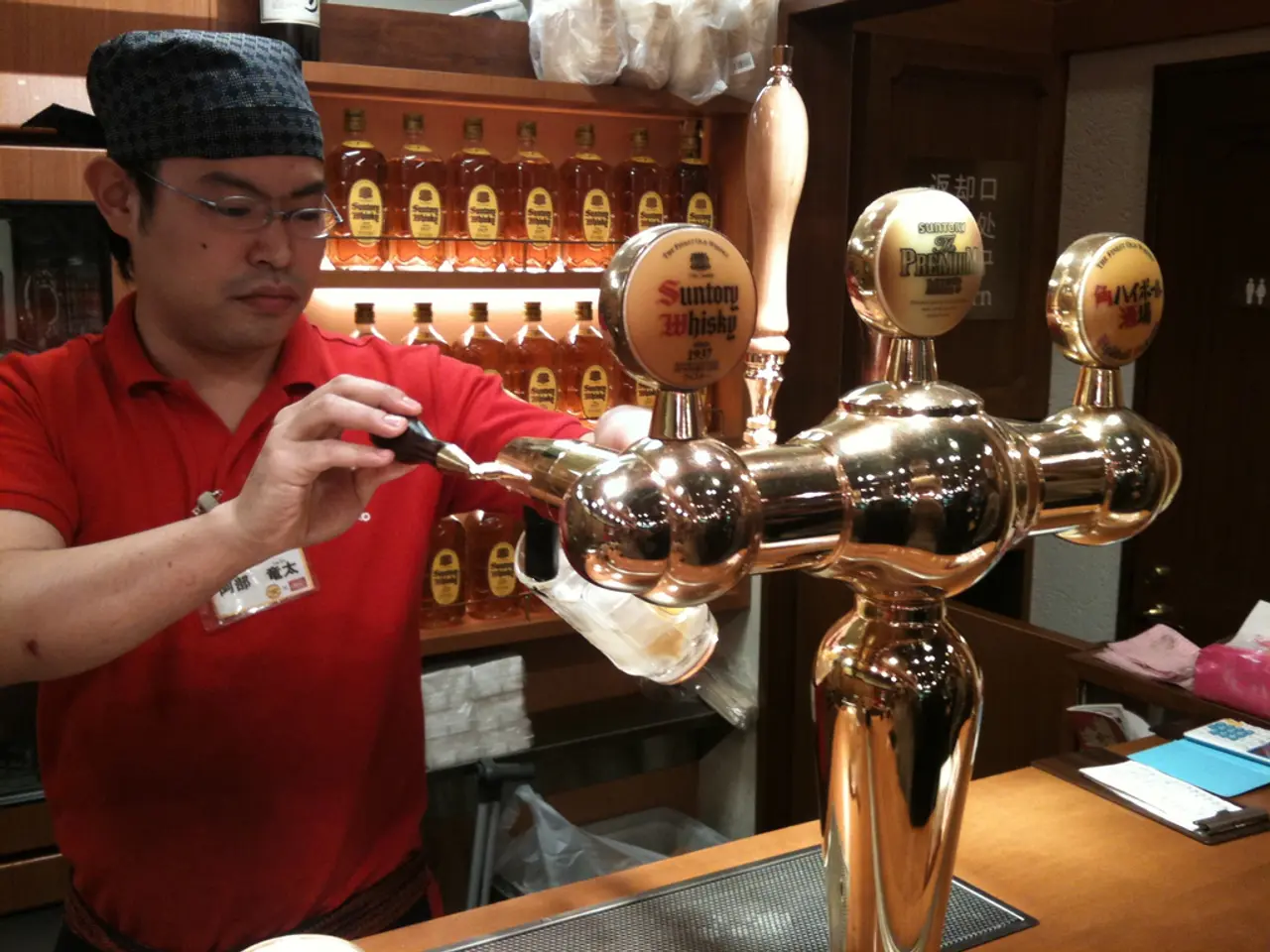Connection Between Gambling and Illegal Activities Explored
In the annals of history, gambling has been inextricably linked to money laundering and organized crime due to the high volume of cash transactions, relative anonymity, and complexity of casino operations. This connection originated from the exploitation of gambling venues by organized crime groups to disguise the illegal origins of large cash proceeds.
During the Prohibition era, notorious gangsters like Al Capone popularized the use of cash-heavy businesses, such as laundries and gambling enterprises, to hide illicit funds. Mafia families, such as the Lucchese crime family, ran illegal gambling operations that often intertwined with racketeering and money laundering schemes.
As casinos became legal in Las Vegas, the Mafia continued to be involved, financing their construction and helping to build Sin City. One of the most notable mob front men was Bugsy Siegel, who built the Flamingo hotel and played a significant role in creating the idea of a gambling mecca in Las Vegas.
In modern times, the connection between gambling and money laundering has evolved but remains prevalent. Large-scale operations use legitimate casino companies to funnel illicit funds. For example, a $100 billion laundering empire linked to casino companies connected to Chinese organized crime networks has been uncovered, with private VIP gaming rooms facilitating the evasion of currency controls and large-scale fraud.
The "Vancouver Model" further illustrates how drugs-for-cash money is laundered through Canadian casinos. Criminals provide large amounts of cash to casinos, which are then "gambled" by front individuals to obtain legitimate casino-issued cheques, thus laundering the illicit proceeds into the regulated financial system.
The evolution of this relationship includes sophisticated financial audit failures, blind spots in regulation, and the blending of gambling with other sectors such as luxury real estate to integrate laundered money into legitimate markets. This complexity has led to systemic challenges for enforcement authorities globally, necessitating ongoing reforms and stricter compliance efforts in the gambling industry.
However, it's important to note that while gambling has been associated with increased criminal activity, it might also prevent some individuals from committing crimes. Bringing a casino into an area can lead to job creation and improvement of the local economy.
The Racketeer Influenced and Corrupt Organizations (RICO) Act, passed in 1970, marked a significant change in the way law enforcement could combat organized crime. Mobsters like Al Capone were brought down due to money laundering and tax evasion, demonstrating the effectiveness of this legislation.
Despite efforts to combat money laundering, the interplay between gambling, organized crime, and money laundering continues to be a significant focus for law enforcement and regulatory reforms worldwide. The persistence of this connection underscores the need for continued vigilance and proactive measures to ensure the integrity of the gambling industry.
A blog post on general news could discuss the ongoing relationship between casino-and-gambling, crime-and-justice, and money laundering, emphasizing the recent discovery of a $100 billion laundering empire linked to casino companies and Chinese organized crime networks.
In the world of crime-and-justice, the Vancouver Model serves as a prime example of how drugs-for-cash money is laundered through casinos, illustrating the complexity of money laundering schemes in the gambling industry.




